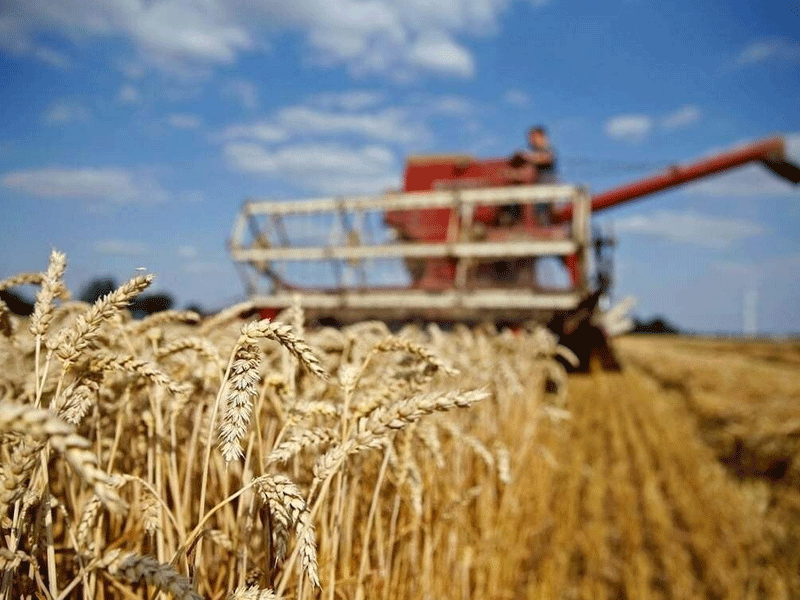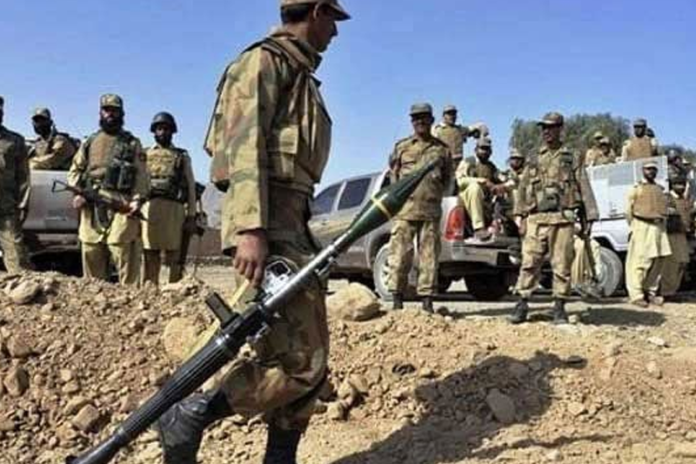Increase in wheat prices: matter of concern

- 309
- 0
The increase in the price of wheat in the open market by Rs. 600 per 40 kg in five days is not a situation that should be delayed in taking immediate notice and taking necessary measures. If there are 75 lakh tonnes of wheat reserves in the country and the price of wheat in the open market has increased from 43 hundred rupees per 40 kg to 4900 rupees per 40 kg on November 6, some questions must come to mind which need answers from those at the helm of affairs.
Wheat is the staple food of the people of our region, whose inflation or scarcity makes the stoves of the poor go cold. If flour is expensive, it affects politics, the country's economy is affected.
The price of wheat is an indicator of the economic performance of the government, which is understood by everyone. If the country is agricultural and the crops are also bumper, the faces of the poor will light up that they will easily get flour, rice and other commodities at cheap prices. But when there is an increase of 600 rupees on forty kg of wheat, it means that one kilo of wheat has become expensive by 15 rupees.
After inclusion of milling wages and profits of flour mills, the amount of flour that will come into the market can be easily estimated. While we also have complaints about smuggling and hoarding, do these complaints not indicate any flaw in the performance of the federal and provincial machinery? Where did the announcement of the Punjab government three weeks ago to supply wheat from the government godowns at cheaper rates. It may recalled here that being agrarian economy, Pakistan has been self-sufficient in wheat, rice, maize and cotton production, today it is forced to import them by spending a lot of foreign exchange to meet local needs. Most of the countries with agricultural economy have revolutionized their production per acre thanks to science and technology. We also has its complete infrastructure including universities and competent scientists, which farmers should benefit from. But we do not pay attention to these factors. Just imagine, ours is the seventh largest wheat producing country in the world. Despite record wheat production this year, flour has become beyond the reach of the poor man and now wheat is being imported from Russia.
This has been going on since 2020 when corona and later floods hit the country. The nerve-wracking crisis of wheat in the country led to the compulsion to import it, costing the country a lot of foreign exchange and making the wheat exporting country one of the importers.
To be very specific, the profiteers and anti-social elements smuggle wheat by creating an artificial crisis under a well-thought-out plan and they are not dealt with iron hands. And one wonders why the wheat prices are rising amid govt claims to have clamped down on profiteers and hoarders and smugglers.
Despite having bumper crops, we are importing wheat and it has been reported that in Karachi, one and a half billion worth of goods have been exported and private wheat importation has started. Importers of Punjab, Sindh have so far bought more than 750 thousand tons of wheat. It is expected that a total of more than 12 lakh tonnes of wheat will be imported by February 2024. Earlier also 55 thousand tons of wheat was imported from Russia. It is hoped that with the availability of imported wheat, active flour mills will no longer need to buy from the black market.
As reported, since October, the supply of government wheat to flour mills will make a 20 kg bag of flour available at Rs 2,600 in the open market for Rs 2,750. Urgent measures for public relief are in place, but there should be arrangements to meet the shortage of wheat on a permanent basis.
Pakistan is primarily an agricultural country and its economy depends on agriculture, but due to poor policies of the governments, adverse natural conditions or misfortune, an agricultural commodity exporting country is currently forced to import wheat and food items as a result. The foreign exchange reserves have shrunk and the trade deficit has increased to an unsustainable level, the measures taken to control it are not working.
In such a situation, there is a urgent need for the efforts to bring about an agricultural revolution in the country must be appreciated. By making it arable, Pakistan can revive its declining economy. Farmers are an example of hard work and perseverance. If they are provided modern facilities, they can produce gold from soil. It may be recalled here that in recent months, a number of schemes have been announced in this regard. These include providing cheap fertilizers and loans on easy terms. There is no reason why the dream of agrarian revolution cannot be realized if the government coming after the elections continues to follow the farmer-friendly policies of the current government and improves them in real sense of the word.
There is a need for the federal and provincial caretaker governments to pay attention to all issues from keeping the hoarders and smuggling under control to improving the market situation. And also remove rust from government machinery.
In recent weeks, the Govt has been making tall claims to have tightened the noose around the hoarders, the smugglers and profiteers, but such claims do no hold water as we have been confronted with same old cycle of price hike and the rise in wheat prices is a case in point.
The irony is that we had bumper prices of rice and wheats, but the prices of both these commodities are on the rise, so one can understand that the government claims are hollow.
If the much-trumpeted anti-smuggling drive against smugglers, hoarders and profiteers fails to bring down the prices of commodities down, then it is of no use. As simple as that.
Published in The Daily National Courier, November, 10 2023
Like Business on Facebook, follow @DailyNCourier on Twitter to stay informed and join in the conversation.

















































